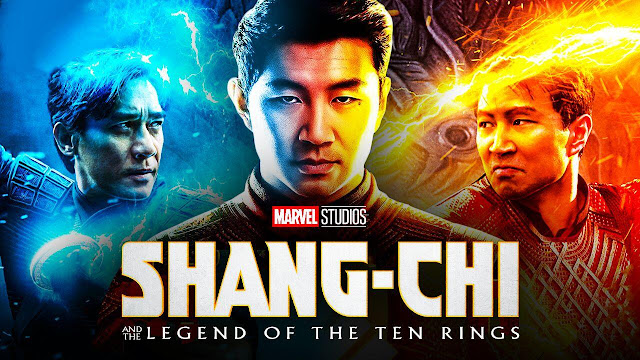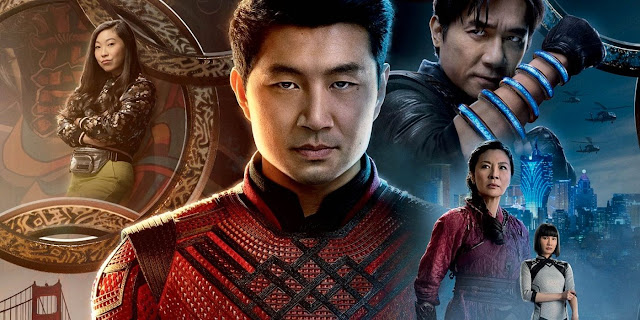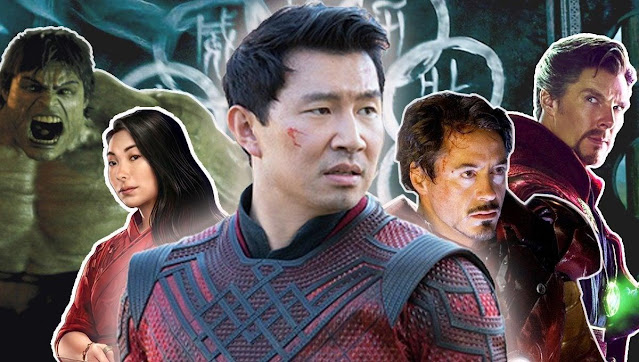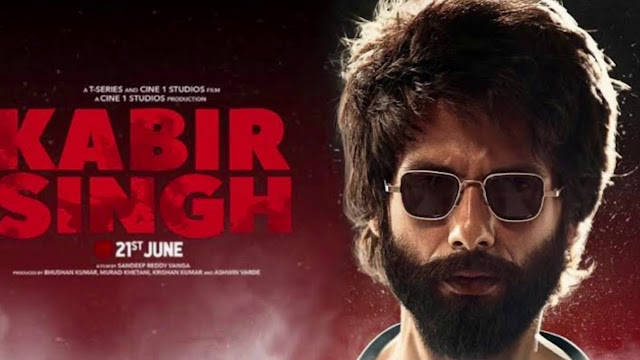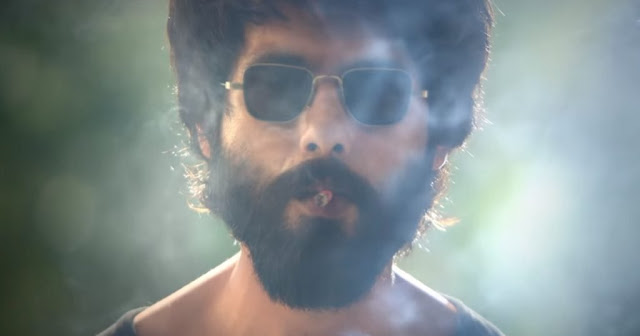Blog Archive
Popular Posts
-
Rio 2 Rio 2 (2014) Rio 2 It's a wilderness out there for Blu, Jewel and their three children after they're rushed from Rio d...
-
World War Z World War Z (2013) World War Z United Nations worker Gerry Lane crosses the world in a race against time to stop the Zo...
-
Star Wars: The Force Awakens Movie Three decades after the annihilation of the Galactic Empire, another risk emerges. The First Or...
-
Crimson Peak Movie Review Crimson Peak ( 2015 ) R | 119 min | Drama, Fantasy, Horror | 16 October 2015 (USA) 7.9 Your ra...
-
RockStar movie RockStar (2011) Janardhan Jakhar pursues his longs for turning into an enormous Rock star, throughout which he go...
-
Maleficent movie Maleficent (2014) Maleficent movie A vindictive pixie is determined to condemnation a newborn child princess, ...
-
Kabir Singh est un remake du film telugu Arjun Reddy (2017), dans lequel un chirurgien ménager au rythme effréné s'habitue à la dro...
-
Avengers: Infinity War Movie Review This film will make you vibrate and break your heart - and make you desperate to go back. Brave, ...
-
The Avengers Age Of Ultron At the point when Tony Stark tries to jolt a lethargic peacekeeping system, things go astray and it is depe...
-
Shang-Chi may be Marvel's first Asian protagonist in the 23 films in the series, but he and his family will not be regarded as newcomer...
Categories
Fadoo Reviews
Kalki 2898 AD: A Cinematic Odyssey into the Future | Movie review | Latest Movie Review
Pushpa 2: The Rule Movie Review | Casting | Overview | Bollywood Movies
Bhulbhulaiyaa 3 (2024) A Thrilling Continuation with Some New Twists | Movie Review | Movie Story
The Bhulbhulaiyaa series has always been an exciting mixture of mystery, horror, comedy, and drama, so Bhulbhulaiyaa 3 did not break the chain. This movie, directed by Anees Bazmee, further extends the legacy of the two earlier films while adding some newer ingredients to keep the spectators engrossed throughout.
Story Outline
Bhulbhulaiyaa 3 starts from where the story of the previous two movies ends and retains the core theme of a haunted palace and the happenings around it. It follows a new set of characters, yet the old story ties to it. The family that has shifted into a grand, old mansion is haunted by an enigmatic curse. When things begin to get eerily strange, the protagonist, played by Kartik Aaryan, must unravel the dark secrets hidden within the mansion and leads to a thrilling and suspenseful journey.
What stands out is how Bhulbhulaiyaa 3 keeps one on the edge of their seat, though the story is a familiar affair, there are enough twists and turns to keep it fresh and unpredictable.
Performance and Characters
The way Kartik Aaryan strikes balance with the comedic and suspenseful elements of his character reminds us of his earlier stint with more perfection. His comic timing stays sharp, especially during light moments that provide relief against much tension. Chemistry with other cast members, including reprise Tabu, really works for the narrative.
Tabu shines once more in her role, wearing mystery and authority as they alone can. The part she plays has a depth that gives the story both its suspense and emotional appeal.
New additions to the cast - Kiara Advani and Rajpal Yadav, bring new energy into the mix. Kiara Advani brings a fresh layer of charm and vulnerability to her character, and she is a great addition to the ensemble.
Direction and Cinematography
Anees Bazmee brings the signature comic sensibility while maintaining the horror-mystery genre. The film is fast-moving, so there is never a dull moment. Suspense and comedy are balanced in the film, and the tone does not get too heavy for the audience. The cinematography of the film, with the shots of the old mansion and its eerie corridors, adds to the spooky feeling. The sets and the visuals of the haunted house effectively capture the tension and dark ambiance of the house.
Music and Sound Design
The music in Bhulbhulaiyaa 3 is a mix of both thrilling and catchy tunes. Tracks like "Ami Je Tomar" will give nostalgia to the long-time fans, while the background score gives a chill of suspense. The sound design also has a great role in the amplification of horror elements of the film, making the tension moments more intense and engaging.
Final Thoughts
Bhulbhulaiyaa 3 is the perfect capture of the first two films, laced with equal parts of horror, mystery, and comedy. The performances, especially by Kartik Aaryan and Tabu, are a great highlight, and the pacing of the film along with the direction keeps one engaged throughout. It doesn't really change the script and tries anything new, but delivers on being fun, suspenseful, and engaging.
For fans of the franchise, Bhulbhulaiyaa 3 is an enjoyable continuation that adds some new twists while staying true to the essence of its predecessors. If you love a good mix of scares and laughs, this movie will certainly keep you entertained.
Shang-Chi Movie Review | Marvel Movie Review | Latest Marvel Movies
Shang-Chi may be Marvel's first Asian protagonist in the 23 films in the series, but he and his family will not be regarded as newcomers to their films. From there, Shangqi quickly stood out for its movements, which emphasized precision and dexterity rather than rough CG power or weightless tricks (although there are many, thanks to the ten rings they give the wearer). Opening with an episode completely narrated in Chinese, Shangqi brought his Chinese inspiration into a series of battle sequences, reminiscent of the arrangement of martial arts stories. Martial arts is an ancient Chinese literary genre featuring martial artists. The first major action scene takes place on a bus in San Francisco, when Fashion Chic fights with his father's henchmen, including all the explosions and fast melees in the classic Marvel movies.
Read More Movie Reviews
Shang-Chi is the first Asian protagonist of Marvel. The film style is based on the rich Asian film history. From martial arts films to gangster films to novels, the most striking is the vibrant visual and emotional style of Ou Wuxia's epic. Released in theaters on September 3, it is Marvel's first Marvel movie featuring Asian actors, characters with Chinese names and dialogues in Mandarin. This movie interweaves the classic Marvel action scenes with the themes of love and family to create a movie that is both interesting and immersive, and at the same time has the depth of a well-written story. This film balances the Marvel action film with a careful consideration of Chinese family, love and culture.
The film features Hong Kong legend Tony Leung as Wenu, the patriarch of Shang Chi and the army of dark ninjas. Leung is extremely persuasive as a villain who is steely or romantic, loving or vengeful at times. Venu, played by the great Tony Leung, is the film's secret weapon and undoubtedly the best antagonist Marvel has created since the Black Panthers of Killmonger. Addressing a long-standing villain problem in the franchise - which is the code for a Marvel movie to pit the hero against someone who is just their evil clone - the Venvus arc in the film is, I would say, more resonant than even Shang-Chi.
What's even more exciting is that the antagonist Xu Wenwu is also challenged with a drab history and a heartbreaking desire to reconnect with the love of his life. Although Shang-Chi and the Legend of the Ten Rings is an action-packed superhero film, it has much more to offer than surface combat scenes, especially when it comes to tender moments between characters and seething life. emotions. the length of the movie. It is in this context that Sialin, initially stony and resentful (for a good reason), appears as more than just a side story of Shang-Chi's journey to the Chosen One; This is what makes the scene in which Shang-Chi is coached by guardian Ta Lo Ying Nan (Yeo) not only enjoyable to watch - Yos still figured it out - but interesting to think about. In scenes such as the last, which takes place in a magical forest outside the hidden realm and uses mysterious ancient artifacts, Shang-Chi hardly resembles a superhero movie.
The franchise's ironic and self-deprecating sense of humor, which does so much to bring the characters back to earth, no matter how outlandish their abilities become, is shown whenever Shang-Chi threatens to look too epic. Filled with dialogue that perfectly echoes the line between witty, impressive, and funny, Shang Chi is a solid film that is delightful no matter how much audiences know the Marvel franchise. Shang Chi is a phenomenal film with a great message, beautiful scenery, strong characters, huge heart and beautifully designed backgrounds. "Shang Chi", directed by Destin Daniel Cretton, tries to shake up the Marvel formula by infusing it with martial arts and fairy fantasy and basing it on Chinese and Asian American culture.
But perhaps more importantly, what makes this movie suitable for the Marvel universe (which is an exception, and even more so for him) is how it gracefully blends into the Chinese martial arts tradition full of fantasy martial arts. The film also has wonderful fighting scenes, carefully staged by Sammi Cheng, a combat coordinator who has a long history with the martial arts legend Jackie Chan. In addition, an outstanding member of the Chance stunt team involved in the production of this movie is Brad Allan, and this movie is to commemorate him. As can be seen from the trailer, Doctor Strange’s yellow and Hulk’s hatred appeared in the movie.
The movie gives a little more context as to why they appeared, especially in this movie, but it's not overly intrusive. But they have always been the protagonists' assistants, lackeys or comedians. Minor and antagonistic characters also have goals, obstacles, and personal development. One of the most important versions of the film is that it is not the protagonist who participates in the love story, but the villain, a choice that humanizes Vienna.
In addition to the love story of Wenu and Ying Li, the film follows the difficult family relationship between Wenu and his children. We have several memories - so many memories - from Shang-Qi's childhood, showing that his mother is dead, he has long been separated from his sister Xialing (Menger Zhang), and the two of them were raised angrier - than the damned Cold-Blooded Assassins. The bad father's daily routine - extraordinarily compelling thanks to Leung - becomes increasingly menacing over time, eroding Shang-Chi's sense of who he could become given what he did and saw. While it is possible to reinvent the character, the filmmakers of Shang Chi chose to completely avoid the stereotypes that plagued the early storylines and embraced aspects of Asia that are glorified; caring for the elderly, respecting parents and respectful grief for deceased family members, including San Francisco as a movie set (in fact, this city has the highest percentage of Chinese residents of any major US city) and the glorification of Chinese mythology and creatures as the central principles of the film.
Despite its autonomous status, Shang Chi's film manages to cleverly connect to the MCU. Leung has a believably intimidating villain, a lovable bunch of heroic personalities (played by Simu Liu, Menger Zhang, Yeoh - even Aquafina gets a good kill when needed) and a dose of truly soulful family drama underlying everything else. It's a decent Marvel excursion that is almost eaten alive by monsters, but only almost.
It follows the same basic model as the other MCU films, but does so with a lot of humor and heart, and Disney is to be commended for its interaction with an Asian director and predominantly Asian cast. With a predominantly Asian cast and a long-standing title, the film offers more than just action scenes, plot, comedy and respect for Chinese mythology. Someone will have to do some real math (and I have no doubt that someone will), but if Shang-Chi and the Legend of the Ten Rings is not yet the most action-packed movie in the Marvel Cinematic Universe - purely in terms of interconnection between the time spent watching people beat each other and the time spent in the meantime in the life of a vampire should be classified somewhere at the top.
Casting
Simu Liu as Xu Shang-Chi / Shaun:
Awkwafina as Katy:
Meng'er Zhang as Xu Xialing:
Fala Chen as Ying Li:
Florian Munteanu as Razor Fist:
Benedict Wong as Wong:
Michelle Yeoh as Ying Nan:
Ben Kingsley as Trevor Slattery:
Tony Leung as Xu Wenwu:
Sooriyavanshi movie review | latest movie review | sooryavanshi movie.
In the fourth issue of the Shettis Police Universe, Akshay Kumar is the Head of the DCP Counter-Terror Team Vir Sooryavanshi, alongside Katrina Kaif, Niharika Raizada, Vivan Bhatena, Nikandar Khan Khan. Deer and Javed Jaferi. This is a full-fledged action movie about Akshay Kumar with Ajay Devgn as Singham and the film apparently belongs to Akshay Kumar, who attracts with massive on screen presence, believable action and charisma, like Sooryavanshi, able to plunge into the climax, by combining action, humor and crossover cameo- Ranveer Singh and Ajay Devgn of previous films into one whole.
In the second half of the film the characters of Simmba and Simmba return to the fight against terrorists with Sooryavanshi, who manages to name Sooryavanshi (Ranveer Singh ) with scuffed-back hair and a curly mustache.
Aside from the opening sequence of Akshay Kumars' opening acts, there are at least no high-octane moments in the first half, which is a bit unimpressive for Rohit Shetty's film, especially one that belongs to the same Singham and Simmba franchise, which failed to create his novelty factor.
On top of this, Sooryavanshi is a competent action movie that sticks to the route and offers at least as much incredible entertainment as it promises. Sooryavanshi is not the kind of masala entertainment that many filmmakers have tried to get the audience to feed - it's pure big screen entertainment that really works for nearly two and a half hours of work. The film has all the elements, attitude, style, execution and stellar power that one would expect from Rohit Shetty's proposal.
And our hero Ki as Veer Soorivanshi (Akshay Kumar), the best of Mumbai Police, moves slowly in the frame, bright Khakis and energetic Ryban in the foreground, preparing to fight the bad guys, also known as Lashkar, who are also Muslim terrorists... While the story itself seems safe (simple and predictable ), Akshay Kumar has successfully taken on the role of his predecessors (Singham and Simmba), and with a generous dose of
Shetty picks up different elements - the romance between Sooryavanshi and his wife Ria (played by Katrina Kaif ), their relationship with their son Arian, his companionship with members of his ATS force - and weaves them together for a climax.
After Singham (named by Ajay Devgn) and then Simbaa (voiced by Ranveer Singh) it now rages in Sooryavanshi (Akshay Kumar) amid many fanfare, drama and loud theatrical performances.
So a person with a touch of masala mida introduces the Diwali Dhamaka that all Bollywood has been waiting for, and Akshay Kumar as Sooryavanshi meets the high standards of Ajay Devgns Singham and Ranveer Singh Simmba. If you ask someone not familiar with Bollywood to watch Bharat, Sooryavanshi and show them a scene with Katrina Kaif from any of the films, he will not be able to
Kabir Singh (2019) | Shahid Kapoor Latest Movie Review
- Shahid Kapoor as Kabir Singh
- Kiara Advani as Preeti Sikka
- Arjan Bajwa as Karan Singh
- Adil Hussain as the college dean
- Suresh Oberoi as Rajdheer Singh
- Nikita Dutta as Jia Sharma
- Kamini Kaushal as Kabir Singh's grandmother
- Anurag Arora as Preeti's father
- Soham Majumdar as Shiva
- Suparna Marwah as Preeti's mother
- Kunal Thakur as Kamal
- Dolly Mattoo as Kabir's mother
- Swati Seth as Vidya
- Anusha Sampath as Keerti
- Vinay Sharma as Kalyan
- Parakh Madan as Preeti's sister
- Amit Sharma as Amit
- Mitansh Lulla as Preeti's brother
- Gagandeep Singh as Preeti's husband
- Rajat Aroraa as the fractured patient
- Ankush Deshmukh as Jia's manager
- Ramakant Dayma as Shiva's father
- Teena Singh as a fractured patient's fiancé
- Danish as Shiva's future brother-in-law
- Meneka Kurup Arora as a lady judge
- Geetika as Preeti's roommate
- Harsh A. Singh as Kabir's lawyer
- Vanita Kharat as Kabir's maid
- Anagha Joshi as the lady on the roof
- Aanchal Chauhan as Karan's wife
- Abhay Raj Singh as Preeti's brother-in-law
- Siya Mahajan as nurse Rani
- Vipul Deshpande as a hospital doctor
- Meneka Kurup as a lady judge
Avengers: Infinity War Movie Review | MCU Movies Reviews | Best Movie Review
 |
| Avengers: Infinity War Movie Review |
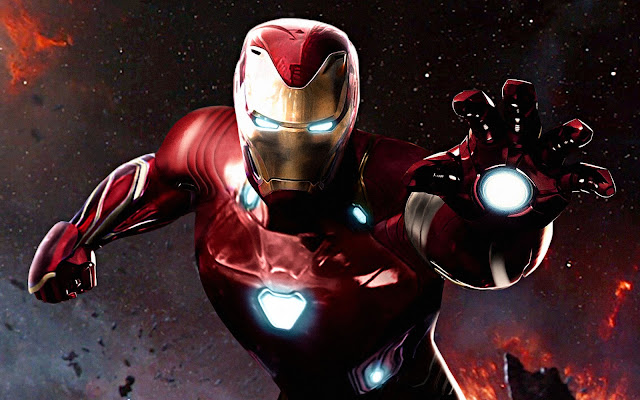 |
| Best Movie Reviews |
- Robert Downey Jr. as Tony Stark / Iron Man
- Chris Hemsworth as Thor
- Mark Ruffalo as Bruce Banner / Hulk
- Chris Evans as Steve Rogers / Captain America
- Benedict Cumberbatch as Dr. Stephen Strange
- Scarlett Johansson as Natasha Romanoff / Black Widow
- Don Cheadle as James "Rhodey" Rhodes / War Machine
- Chadwick Boseman as T'Challa / Black Panther
- Tom Holland as Peter Parker / Spider-Man
- Elizabeth Olsen as Wanda Maximoff / Scarlet Witch
- Paul Bettany as Vision
- Anthony Mackie as Sam Wilson / Falcon
- Sebastian Stan as Bucky Barnes / Winter Soldier
- Idris Elba as Heimdall
- Tom Hiddleston as Loki
- Peter Dinklage as Eitri
- Benedict Wong as Wong
- Pom Klementieff as Mantis
- Karen Gillan as Nebula
- Dave Bautista as Drax the Destroyer
- Zoe Saldana as Gamora
- Bradley Cooper as Rocket
- Vin Diesel as Groot
- Benicio del Toro as Taneleer Tivan / The Collector
- Chris Pratt as Peter Quill / Star-Lord
- Josh Brolin as Thanos
- Gwyneth Paltrow as Pepper Potts
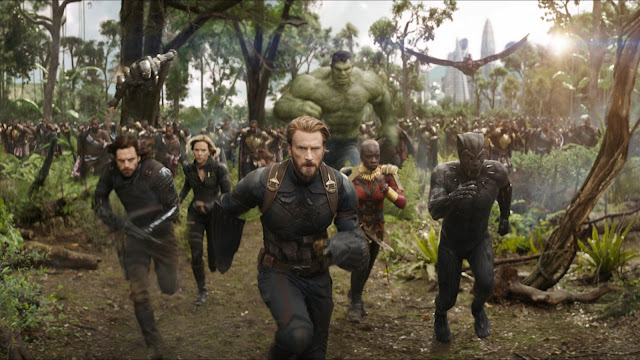 |
| Avengers: Infinity war movie story |














